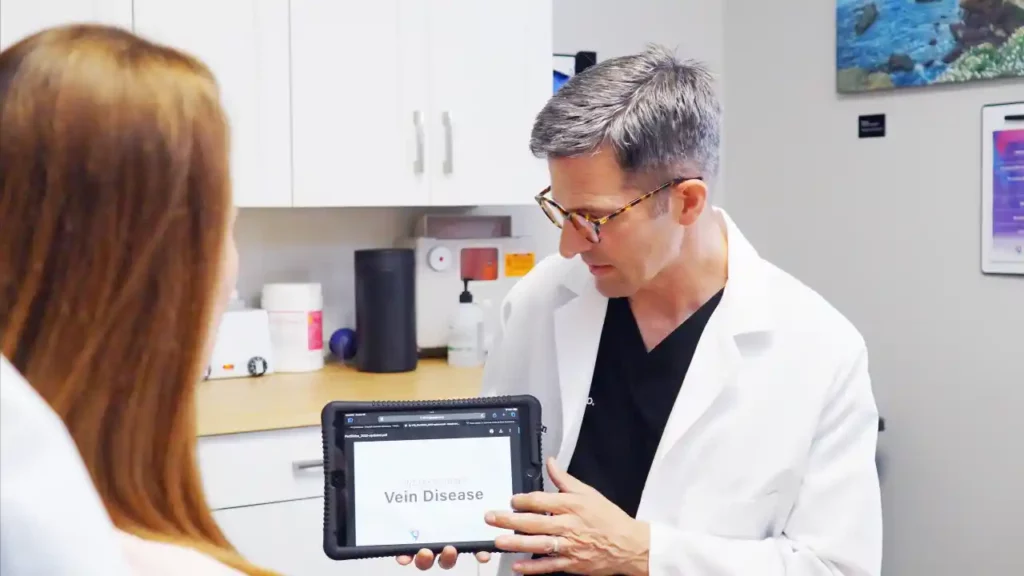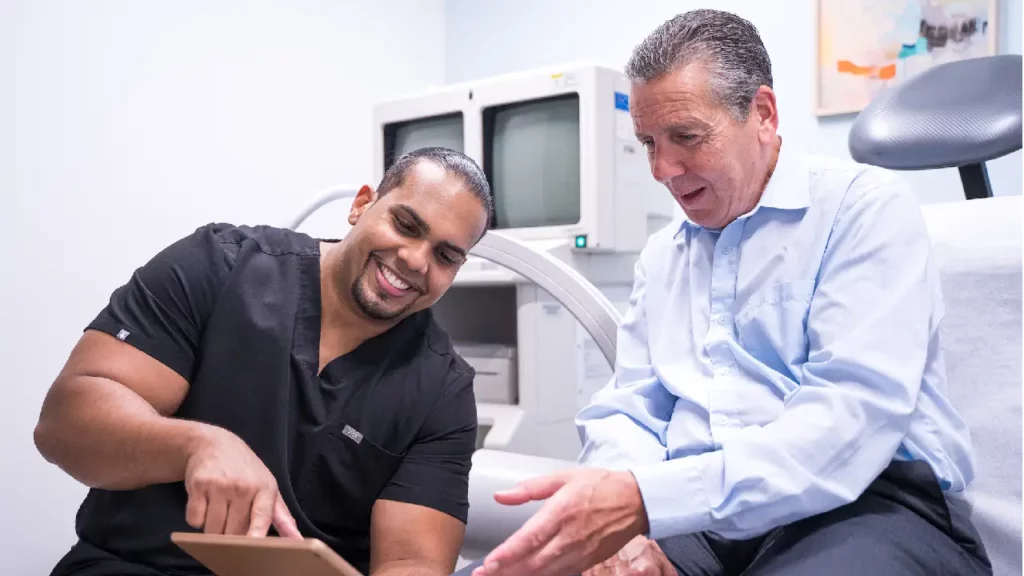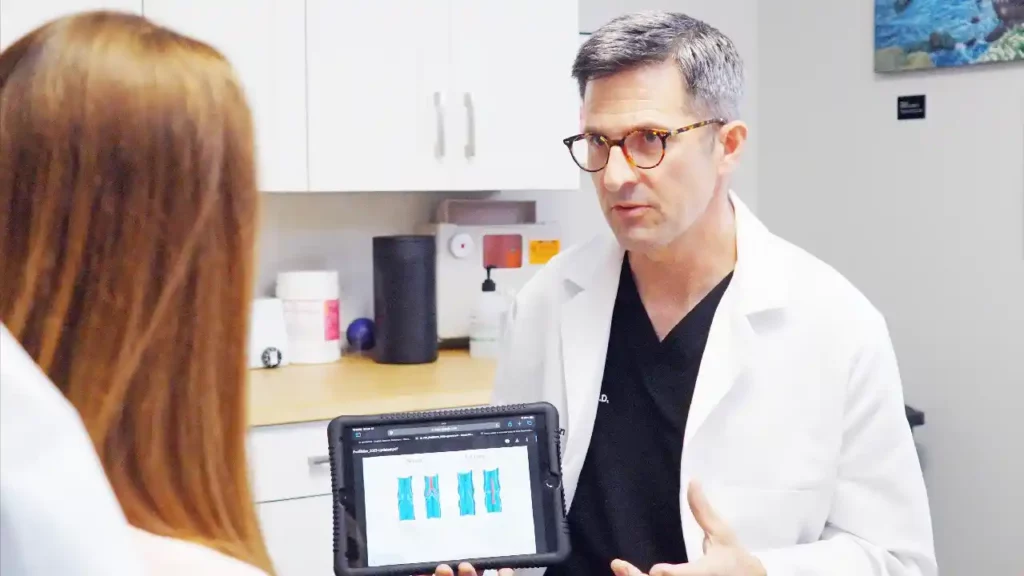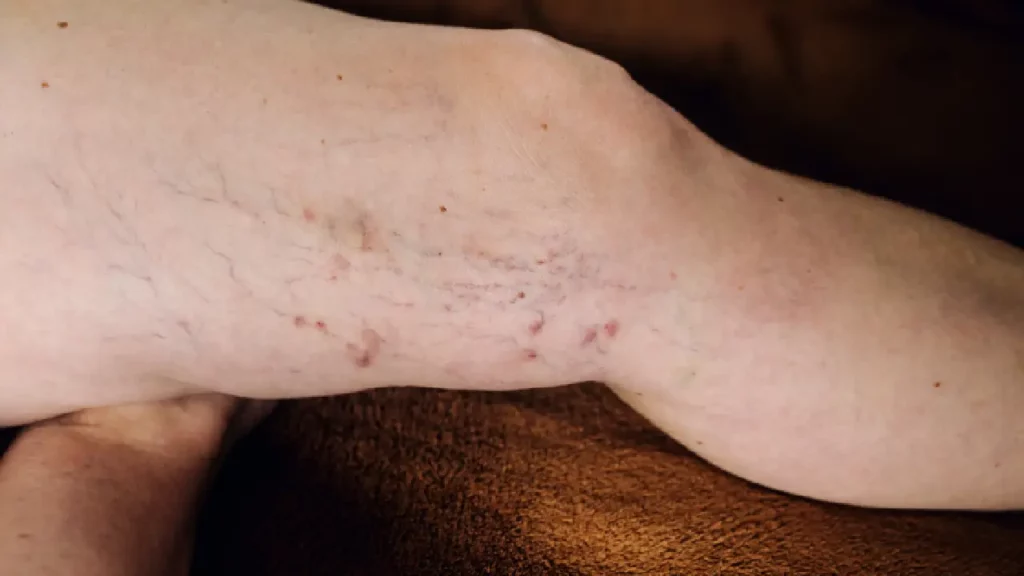Dr. Kindelan Explains How to Diagnose Venous Insufficiency
Chronic venous insufficiency (CVI) is a common condition that affects the veins in the legs, causing discomfort and swelling. It occurs when the veins can’t pump blood properly, leading to blood pooling in the legs. Early diagnosis and treatment are essential to avoid the development of more serious issues like varicose veins and chronic pain.
At Vein Doctor for Women, Dr. Joshua Kindelan offers expert care in diagnosing and treating venous insufficiency. With years of experience, including time serving in the U.S. Navy, Dr. Kindelan understands the critical importance of early intervention for vein health.
What is Chronic Venous Insufficiency?
Chronic venous insufficiency is a condition in which the veins struggle to return blood from the legs to the heart. The valves in the veins become damaged or weakened, preventing blood from flowing properly. This condition often leads to discomfort, swelling, and the formation of varicose veins, and can severely impact your quality of life. If left untreated, CVI can worsen over time, leading to more complicated symptoms and issues.
What Are the Common Signs and Symptoms of Chronic Venous Insufficiency?
CVI can develop slowly over time, with symptoms worsening if left untreated. The signs of venous insufficiency can vary, but the most common symptoms include:
- Leg swelling, especially after prolonged standing
- Pain or aching in the legs, particularly around the ankles
- Visible varicose veins or bulging veins on the surface of the skin
- Heaviness or tightness in the legs
- Itching, dryness, or discoloration of the skin around the affected veins
- Cramping or restlessness in the legs, particularly at night
- Skin ulcers or open sores near the ankles, in advanced cases
What Causes Chronic Venous Insufficiency?
CVI develops when the valves in the veins, which normally prevent blood from flowing backward, become weakened or damaged. When this happens, blood starts to pool in the veins, leading to the symptoms associated with venous insufficiency. The causes of CVI include:
- Weak or damaged vein valves, which cause blood to flow backward
- Age, as veins weaken over time
- Genetics, as CVI can run in families
- Pregnancy, which puts additional pressure on the veins
- Obesity, which increases pressure on the legs
- Prolonged standing or sitting, which hinders normal blood flow
- Previous blood clots, which can damage the veins
What Are the Possible Complications of Untreated Venous Insufficiency?
If venous insufficiency is not diagnosed and treated promptly, it can lead to several severe complications that significantly affect your quality of life. These complications can include:
- Chronic leg pain and discomfort that worsens over time
- Ulcers or open sores on the skin, typically near the ankles
- Severe swelling that can make it difficult to walk or stand
- Blood clots that can form due to stagnation of blood in the veins
- Skin changes, including discoloration, eczema, or thickened skin
- Venous dermatitis, which leads to inflammation and irritation of the skin
- Infection in skin ulcers, which can spread if left untreated
How to Diagnose Chronic Venous Insufficiency?
Diagnosing CVI typically involves a combination of physical examination and diagnostic imaging. The most important diagnostic tool for venous insufficiency is duplex ultrasound, which helps vein doctors assess blood flow and valve function in the veins. Here’s how the diagnosis process works:
- Medical history: Your vein doctor will ask about your symptoms, lifestyle, and family history of venous conditions.
- Physical examination: Dr. Kindelan will examine your legs for visible signs of venous insufficiency, such as varicose veins, swelling, or skin changes.
- Duplex ultrasound: This non-invasive imaging test uses sound waves to create an image of the veins and detect any blood flow problems. It can reveal damaged or weakened vein valves, and it’s considered the gold standard for diagnosing CVI.
What’s the Importance of Early Diagnosis?
Diagnosing venous insufficiency early is crucial for preventing more serious complications like varicose veins, ulcers, and chronic pain. The sooner CVI is identified, the more options you have for non-invasive vein treatments. Some benefits of early diagnosis include:
- Preventing the progression of symptoms before they become more severe
- Reducing the risk of developing varicose veins, ulcers, or chronic skin changes
- Improving treatment outcomes with less invasive techniques
- Managing symptoms early on, leading to better overall quality of life
Why Choose Dr. Kindelan for Vein Treatment?
Dr. Joshua Kindelan’s unique background and expertise in venous care make him an excellent choice for those seeking treatment for venous insufficiency. Here’s why you should trust him with your vein health:
- Extensive Training: Dr. Kindelan completed his general surgery residency at the Bethesda Naval Hospital and a second residency in cardiovascular and thoracic surgery at Northwestern University Medical Center.
- Military Experience: Dr. Kindelan served in the U.S. Navy, performing surgeries in various challenging environments, including war zones and aboard ships. His ability to handle difficult cases under pressure has honed his skill set and ability to think critically in complex situations.
- Minimally Invasive Techniques: Specializing in state-of-the-art, minimally invasive varicose vein treatments, Dr. Kindelan provides the most advanced treatment options for CVI. His approach ensures faster recovery times and less discomfort for patients.
- Personalized Care: Dr. Kindelan understands that each patient is unique, and he tailors his treatment plans to meet your individual needs. His compassionate approach ensures that you feel heard and cared for throughout your treatment.
At Vein Doctor for Women, we’re proud to have Dr. Kindelan as part of our team. Contact us to verify your insurance details or learn about our vein clinics to find the nearest location. By focusing on early detection and treatment, Dr. Kindelan ensures you receive the best possible care for venous insufficiency. Don’t wait until your symptoms worsen—schedule a consultation today to diagnose and treat your vein problems.
